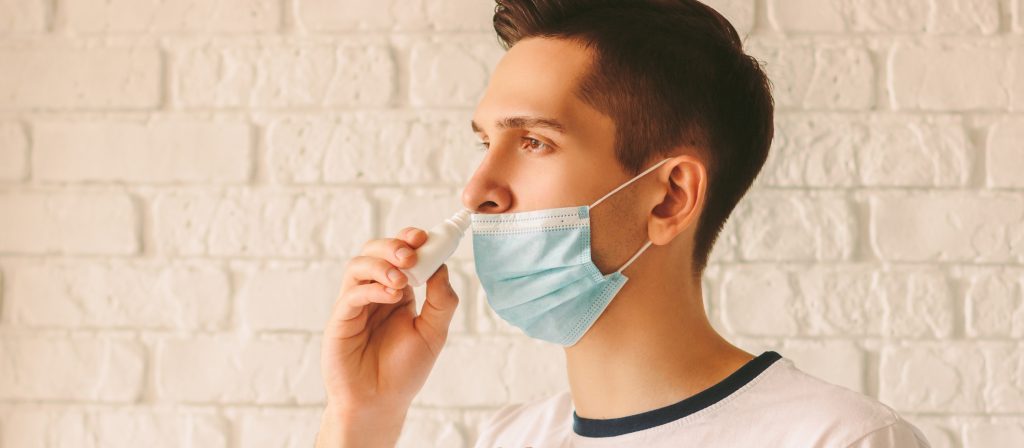The month of April may begin with April Fool’s Day, but the effect of stress on our health is no laughing matter. Especially this year with the physical, financial and emotional impact of the ongoing coronavirus (COVID-19) pandemic, it’s a particularly apt time to consider the effects of stress on our well-being, and some steps to manage it as effectively as possible.
Stress Awareness Month was begun in 1992 by the non-profit Health Resource Network to educate people about how to deal more effectively with stress and anxiety. (In the U.S., we even have set aside a special day for it — appropriately, April 16, the day after what is normally known as Tax Day (the latter having been pushed back to July 15 due to the pandemic) — so we can recognize just how stressed we’ve become by filing day!) The month’s observance encourages healthcare professionals and health promotion experts to join forces and increase public awareness about both the causes and cures for our modern stress epidemic.
Certainly, the COVID-19 pandemic and the effects of all of our lives isn’t helping right now…and for a still-unknown amount of time to come. Our IRAs and the stock market in general have, for the most part, lost value far more quickly than they had gained. Many people are temporarily out of work because their places of business — restaurants, bars, hotels, convention centers, airlines and other service-oriented fields — are closed or hours are shortened. That not only affects our financial security but often our healthcare insurance eligibility, as well as our overall stress levels.
The effects of stress
Stress is often felt in a tightening of the muscles, increased blood pressure, headaches, dizziness and dry mouth. As Mayo Clinic staff report, severe stress — especially chronic stress — can often have direct correlation with heart disease, anxiety and depression, anger, infertility, changes in sex drive, and a general lowering of the immune system which, in turn, opens the body up to many other diseases. So people who say “it’s just stress” aren’t thinking about the very serious impact it can have on our physical and emotional health.
How to manage it
What’s most effective to reduce stress varies for each of us. Here are just a few suggestions you might keep in mind for yourself, your staff and your patients.
 Get plenty of rest. Sleep’s positive impact on our health and well-being cannot be overstated. Adjusting to the spring “leap forward” to Daylight Saving Time often impacts our ability to sleep as effectively, no matter how our lives are going otherwise. In effect, our body’s internal clock is “off,” often leaving us feeling groggy and irritable. It can also be dangerous. Cleveland Clinic experts note that both heart attacks and fatal car accidents after the spring shift to DST. For some people, adjusting can take a few days; others can take weeks. For a nation that’s already sleep-deprived due to the stress of multi-tasking and family and work requirements, adjusting to the shift in daylight and nighttime that causes an adjustment to our sleep patterns can make a huge impact on our health.
Get plenty of rest. Sleep’s positive impact on our health and well-being cannot be overstated. Adjusting to the spring “leap forward” to Daylight Saving Time often impacts our ability to sleep as effectively, no matter how our lives are going otherwise. In effect, our body’s internal clock is “off,” often leaving us feeling groggy and irritable. It can also be dangerous. Cleveland Clinic experts note that both heart attacks and fatal car accidents after the spring shift to DST. For some people, adjusting can take a few days; others can take weeks. For a nation that’s already sleep-deprived due to the stress of multi-tasking and family and work requirements, adjusting to the shift in daylight and nighttime that causes an adjustment to our sleep patterns can make a huge impact on our health.
It’s recommended that you:
- Stick to your regular schedule, being consistent with eating, social, bed and exercise times. Sleeping in on weekends may be extremely tempting, but it also can further disrupt your sleep cycle.
- Don’t take long daytime naps. If necessary, take them early and for no more than 20 minutes.
- Avoid coffee, caffeinated beverages (and chocolate, though it’s OK in moderation depending on your blood sugar) and alcohol for 4 to 6 hours before bedtime. And avoiding tobacco and vaping products should go without saying.
- Put your phone, computer or tablet away, and turn off the television well before bedtime. Electronics’ high-intensity light stimulates your brain and hinders melatonin, a hormone that triggers sleepiness. (See this page by the National Institutes of Health for the effects of melatonin and the pros and cons of taking supplements.)
Keep connected. Especially since all but essential persons are encouraged to practice “social distancing” and stay at home as much as possible, this isolation can dramatically increase a person’s depression, anxiety and a possible increase in alcohol or drug use. For both your sake as well as of your patients and staff, I encourage you to continue to leverage the power of electronic communications —including social media — to keep connected and let your team and patients know they continue to be valued.
Take a breath, take a break! It’s hard, I know. (Me too.) When you or your patients are facing one or more important, immediate deadlines or you’re worried about the ongoing health of your practice itself, it’s easy to forget that you haven’t risen from your desk chair for hours. Remember that few if any of us do our best work when stressed and fatigued, no matter what they told you in residency! Build a couple of stretch or other types of breaks into your calendar, and set your watch or smart phone with alarms to remind you when it’s time to take a break.
 Drink plenty of water. The value of staying hydrated — drinking water or even sugar-free sports drinks — can’t be overstated. Per the Harvard School of Public Health, it helps regulate body temperature, keeps joints lubricated, prevent infections, delivers nutrients to cells, and keeps organs functioning properly. Being well-hydrated also improves sleep quality, cognition and mood.
Drink plenty of water. The value of staying hydrated — drinking water or even sugar-free sports drinks — can’t be overstated. Per the Harvard School of Public Health, it helps regulate body temperature, keeps joints lubricated, prevent infections, delivers nutrients to cells, and keeps organs functioning properly. Being well-hydrated also improves sleep quality, cognition and mood.
Create a culture that promotes stress management. That’s meant for bosses including you as an overworked, stressed-out provider…as well as good advice for your staff and your patients. For you, ensure everyone knows that their work is valuable, and that you’re there for your patients…including referrals to counselors if needed.
Recognize that stress science needs to include brain science. Stress management has always been about maintaining an internal locus of control (such as feeling like you’re in the driver’s seat of your own life). We now know that our locus of control may actually reside in the prefrontal cortex (PFC) of the brain. Knowing how to access and nurture the PFC ultimately leads to greater control over our emotions, our fears and our stress, and this link to a scientific article link in Biological Psychiatry may be of interest to you.
Use telehealth whenever possible to relieve office staff shortages or temporary closings. Right now, in-person office visits can present stress and a potentially dangerous health risk for your patients and staff alike. Use telehealth and e-prescribing to take the place of many office visits, and reschedule routine things such as annual physicals until the current pandemic stressors have passed…hopefully ASAP! For medication management, our clinical pharmacists and care coordinators are here to help. Just call us at (866) 234-4974 to get started, or for current customers, to get more involved in your practice during this period than we already are.
 Chill out! Meditate, get regular physical activity (though not in a shared gym right now), cook that meal with the recipe you’ve been meaning to try, pet your dog, watch your favorite movies, etc. Remember that much of what you’re feeling — including the many stressors related to the current COVID-19 pandemic — are probably temporary. Stock portfolios will eventually rebound, your patient load will come back larger than ever, and things will return to some form of normality.
Chill out! Meditate, get regular physical activity (though not in a shared gym right now), cook that meal with the recipe you’ve been meaning to try, pet your dog, watch your favorite movies, etc. Remember that much of what you’re feeling — including the many stressors related to the current COVID-19 pandemic — are probably temporary. Stock portfolios will eventually rebound, your patient load will come back larger than ever, and things will return to some form of normality.
Finally, in the worlds of Richard Carlson, PhD, “Don’t sweat the small stuff…and it’s ALL small stuff.” Hang in there, and let us know if we can help at any time.
Other resources to use or share
Take the Time to Unwind (Federal Occupational Health)
10 Ways to Celebrate Stress Awareness Day (HuffPost; 2016 but still pertinent)





